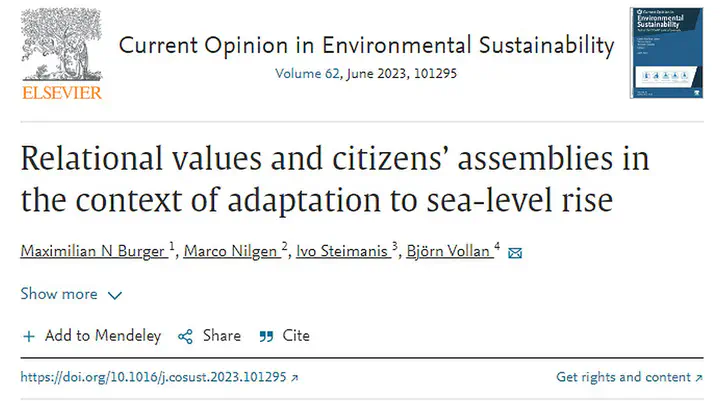 Volunteers help in clean up efforts in Simbach western Germany. Source: dw.com
Volunteers help in clean up efforts in Simbach western Germany. Source: dw.com
Abstract
Rising sea levels are projected to affect millions of coastal inhabitants, as climate change is threatening livelihoods all over the world. Those in charge of policy in affected areas will have to weigh the costs and benefits of moving people and communities out of harm’s way (retreat) versus accommodating and protecting them in situ (resist). Decision-making solely based on direct material benefits of a location neglects other value types that are crucial to accurately reflect the actual valuation of the land. Relational values arise from the human-nature relationship and have recently been recognized as an important source of valuation for land beyond material benefits. However, since relational values are difficult to determine, incorporating them in the decision-making presents a challenge. Our contention is that the implementation of deliberative and inclusive approaches, such as citizens’ assemblies, can serve as an effective means of developing adaptation policies that incorporate relational values.